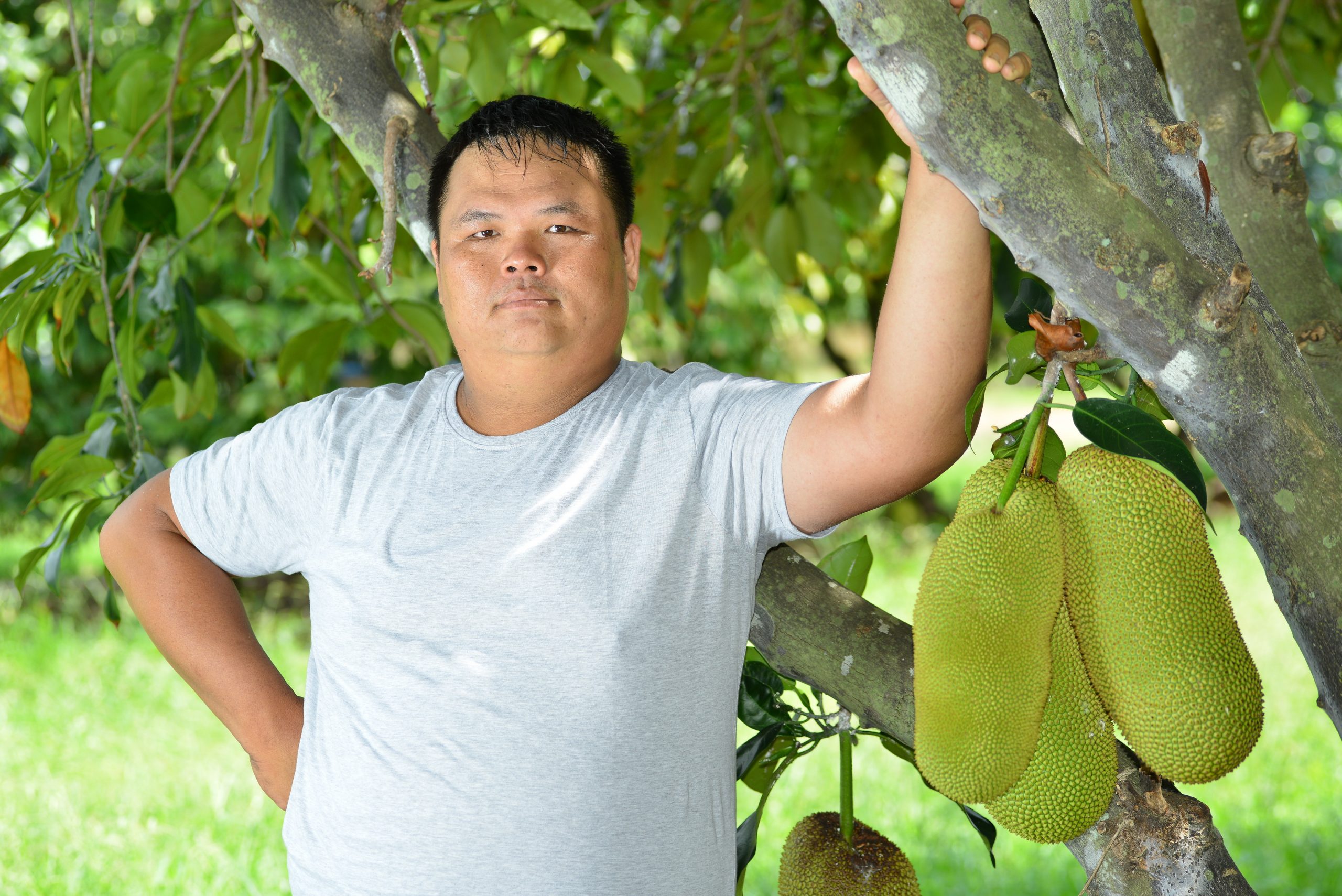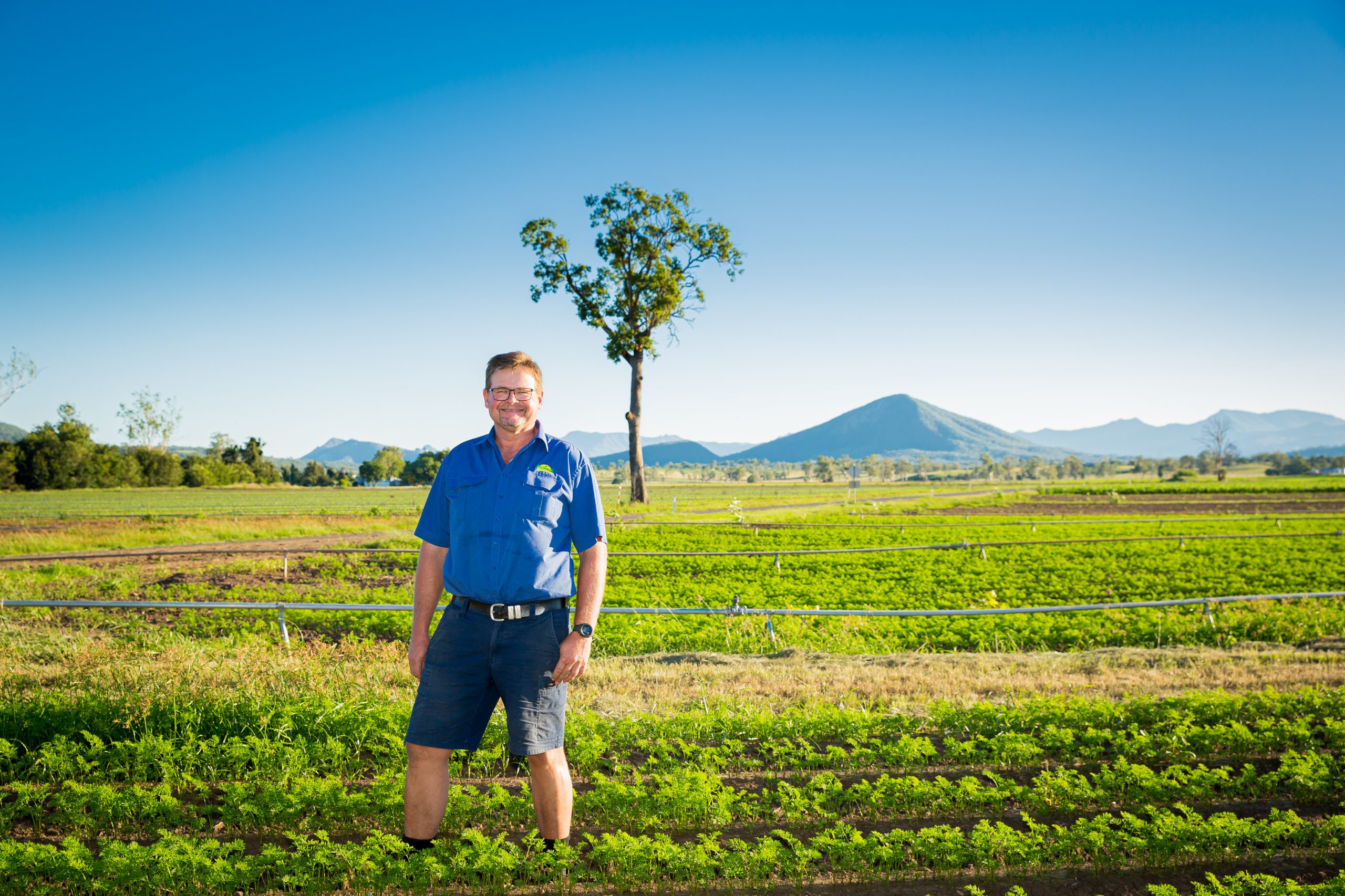
Regenerative agriculture approach paying off for veg growing operation
28 February 2022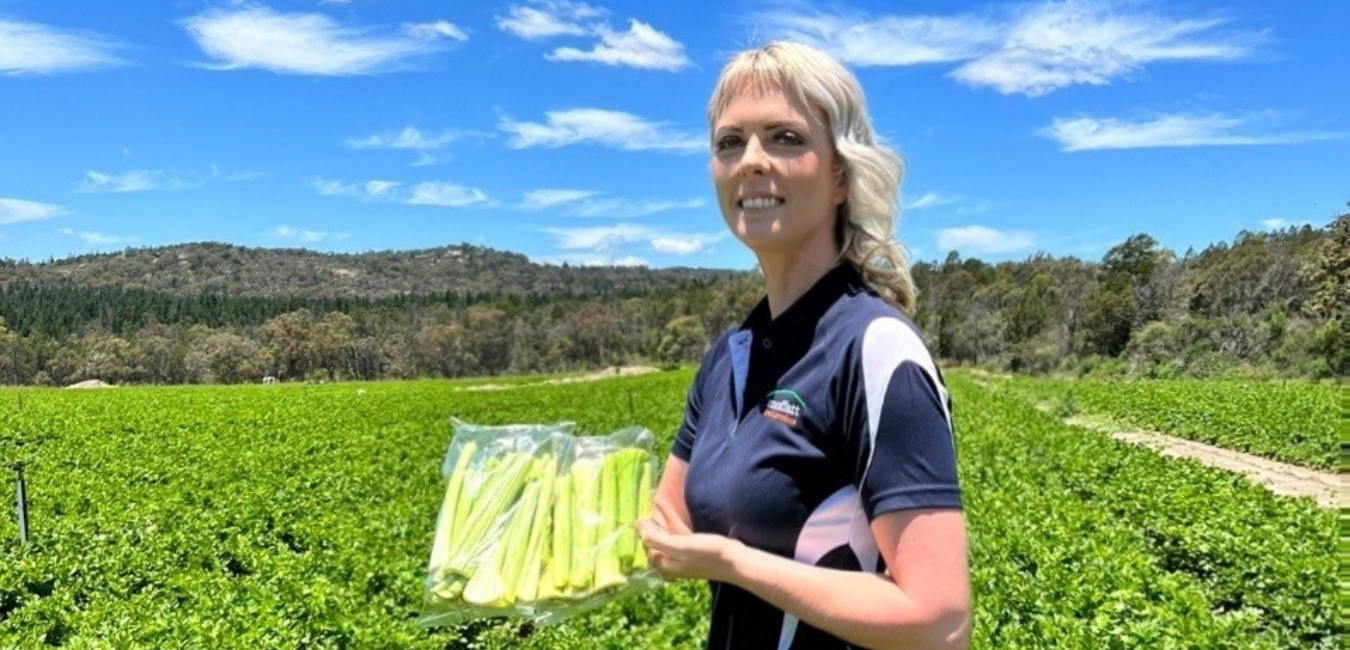
Eileen Odgers: Rising through the ranks of quality assurance
28 February 2022Han Shiong Siah’s family has been farming at Lambells Lagoon since arriving in 1987 from Malaysia. Originally growing Asian vegetables on eight hectares, the operation has evolved and expanded over the past three decades. Tropical Primary Products is now set on 125 hectares of production land growing a range of tropical fruit with a focus on its own breed of mangoes as well as jackfruit and durian.
Fast facts
Name: Han Shiong Siah
Location: Lambells Lagoon, Northern Territory
Works: Tropical Primary Products
Grows: Tropical exotic fruit including mango, durian, jackfruit, pomelo and water apples
How did you first become involved in the horticulture industry?
Like most who grow up on a family farm, I was involved in horticulture from quite a young age – I’d pick fresh produce on weekends and school holidays.
It was not until I completed my degree in agriculture science and returned to the family farm in 2009 that I become more involved with the horticulture industry.
This started with going to Northern Territory Horticulture Association (NTHA) meetings and then progressing to becoming a Board Director.
I was then elected to the Northern Territory Mango Industry Association (NTMIA) Board. In 2014, I joined the Australia Mango Industry Association (AMIA) Board as Northern Territory and Northern WA Director. I took a small break from NTHA when it combined with NT Agriculture, which led to the formation of the Northern Territory Farmers Association (NT Farmers). I returned to the NT Farmers Board a few years later.
What is your role in the business? And what are your responsibilities connected to your role?
I’m the Farm Manager. My day-to-day duties include supervising the picking crew during mango season to tailoring and completing the spray and nutrient regime. During the off-season, I undertake general maintenance, which includes keeping the weeds under control to slashing the grass that grows during the wet season. There is never a dull day on a tropical fruit farm.
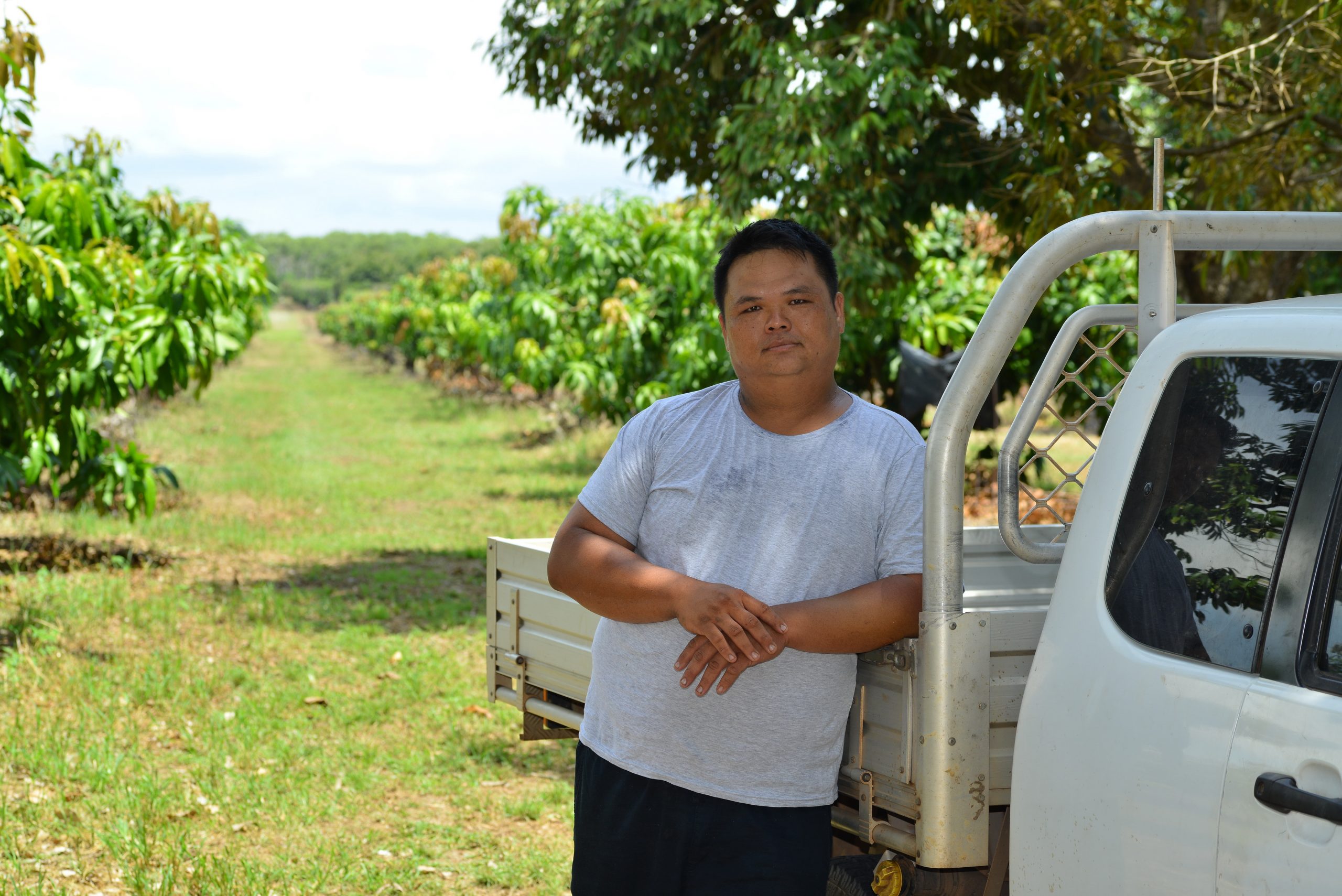
You moved to Australia in 1987, and your parents initially grew Asian vegetables. Why did they decide to move away from veg and grow tropical fruit instead?
My family migrated to Darwin in 1987 for their children’s education (three sisters and myself).
My mother (Siew Yoon Hew), known to locals as ‘Mrs Siah’, came from an agricultural family that harvested rubber from rubber trees before opening a nursery to supply oil palm seedlings, which was an emerging industry.
The family was interested in tropical fruit. My uncle would travel to Malaysia to bring back tropical fruit, and my parents’ original plan was to grow tropical exotic fruit, with Asian vegetable as an intermittent cash crop until the trees were in production. Once us children moved off to university, our parents transitioned to a perennial tree crop as it was much easier to manage.
What are the biggest challenges you face when growing tropical fruit, and how do you overcome them?
Weather. Darwin is unique in that we have a distinct wet and dry season. However, the dry season is a bit too dry and cold (under 10°C) for the durian trees, to a point where some trees will lose leaves – to about an 80 per cent drop. If we lose too many, the trees will die.
We overcome this challenge by increasing the humidity in the tree canopy with water misting as well as making sure we have enough water and nutrients to survive the harsh dry cold spell. It can be trial and error.
"Most of the advice for unique tropical fruit comes from reading up on overseas practices and other regions and then seeing if it can be adapted to suit our local environment."
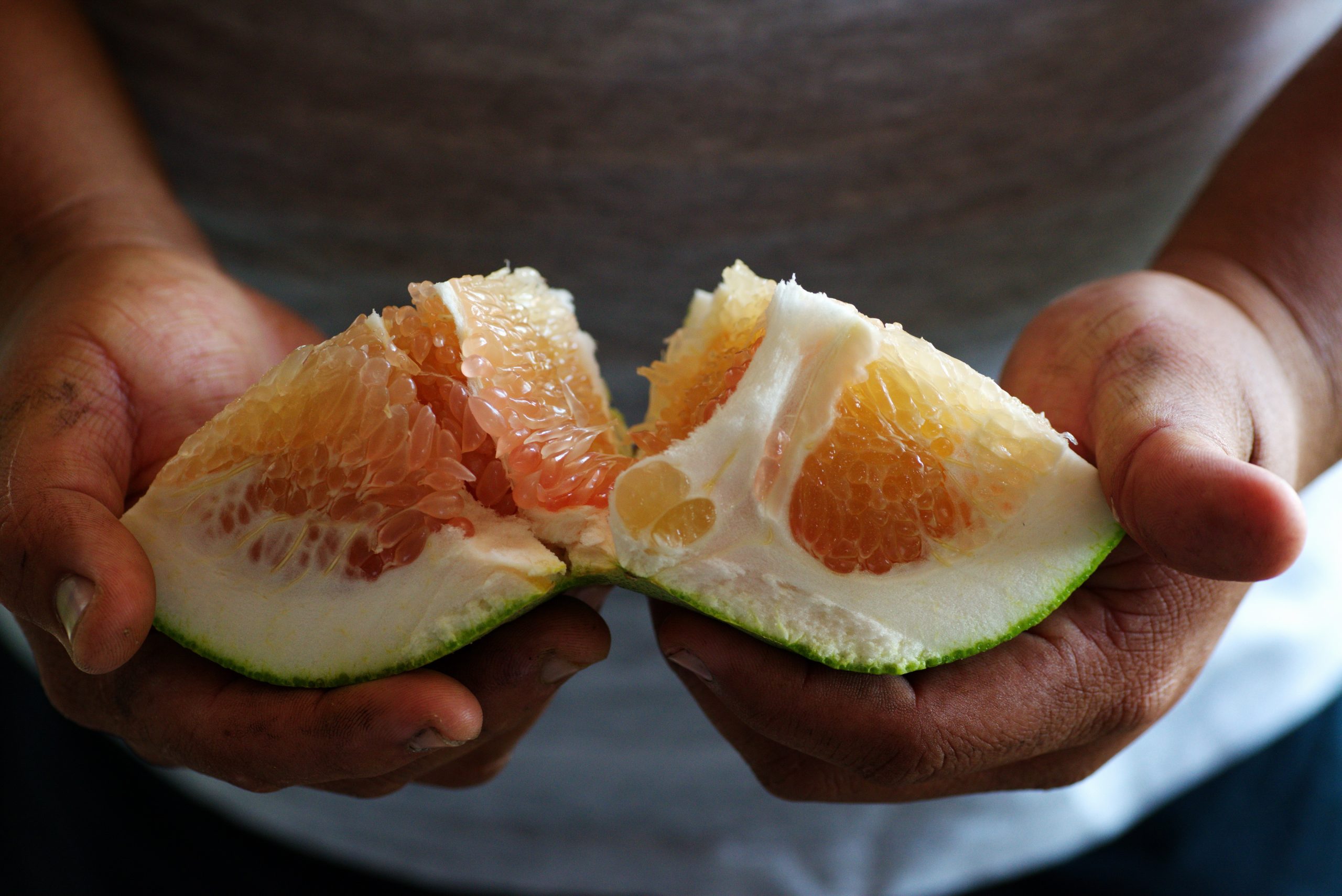
What’s most unique about growing tropical fruit in the Top End?
Being able to grow some true rainforest tropical crops in a climate that has distinct wet and dry seasons. Being hotter on average than tropical far-north Queensland, the main advantage is that we can get products to flower and fruit about three months earlier than the Queensland crops, which means we can get to market earlier. However, there is a lot more work involved in these true rainforest trees to survive the harsh climate up in the NT.
Where do you receive your on-farm practice advice and information from?
Most of the advice for unique tropical fruit comes from reading up on overseas practices and other regions and then seeing if it can be adapted to suit our local environment. This would be fertilising and water regiment.
Having completed an agriculture science degree at the University of Adelaide, I was able to bring back techniques I picked up from southern states. These included improving irrigation and power efficiency and improving leaf nutrient testing – moving to more efficient single level micro and macro nutrient application based on tree needs. These practices have saved the farm lots of money in the long-term as well as improved the soil and tree health.
You received a Nuffield Scholarship in 2015, and as result published a report entitled Alternate and Cost-Effective Methods to Control Flying Feral Vermin. Why did you focus on this subject for the report?
I focused on this topic as I had major issues with magpie geese coming out from the wetlands during the hunting season and damaging my mango and other horticultural crops. With urban encroachment and restrictive use of firearms on-farm to control these birds, I wanted to look at other non-lethal, cost-effective methods of controlling them.
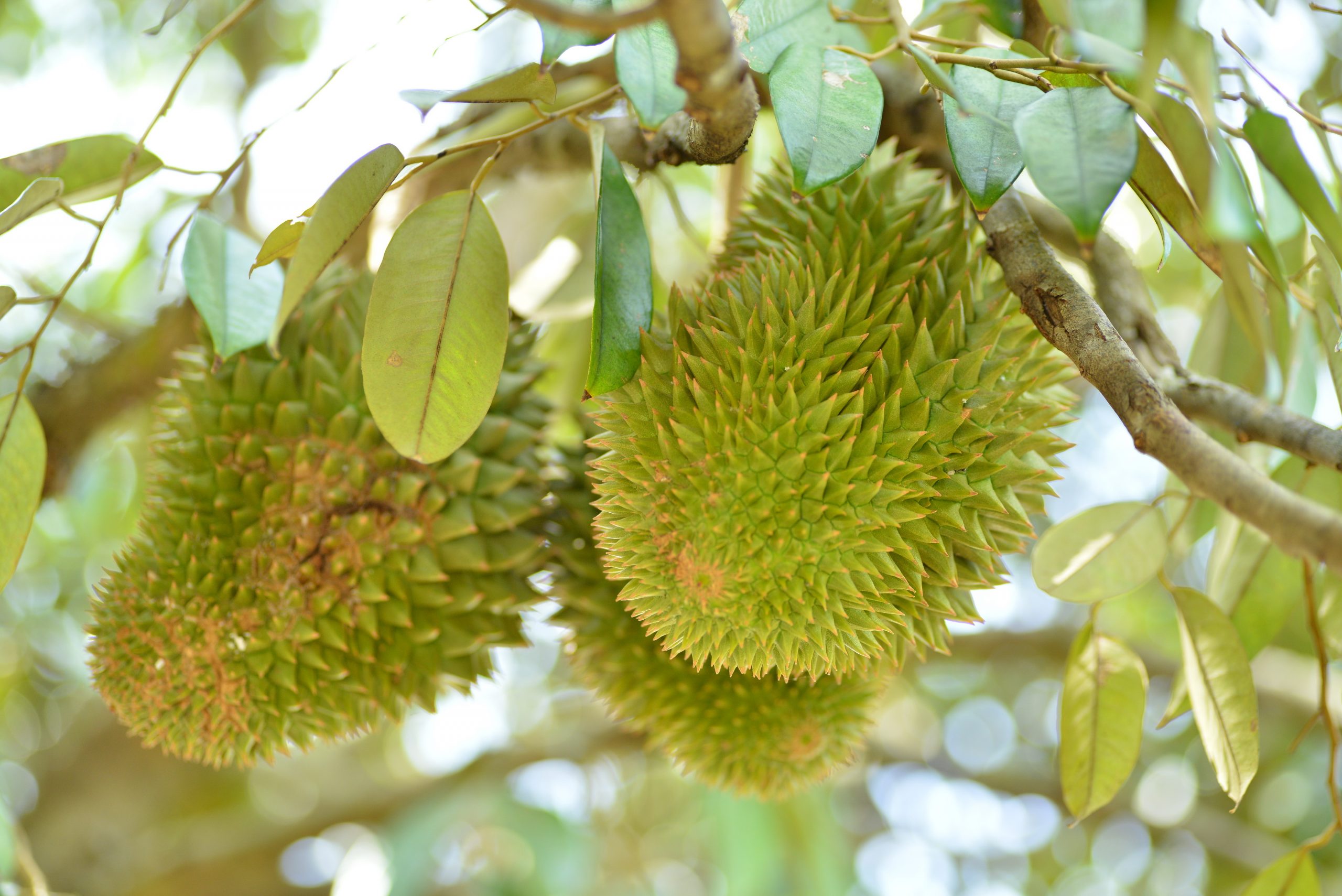
What were the highlights of your scholarship experience?
Being able to travel the world was the main highlight. I was able to visit 10 countries during my travels, which ranged from the U.S.A., the Netherlands, Kenya and South Africa.
I was able to see how farming practices differ to Australia, and how something we take for granted here is hard to come by in other parts of world. I also saw how farmers come up with unique solutions to problems, such as the juice company in Kenya that buys fruit from small-scale farmers and also provides free agronomic support to them. There were vineyards roaming with wild boars to provide pest and weed control in the wine district of South Africa.
These are memories I’ll cherish for life, such as visiting Crater Lake in Oregon, U.S.A. to being on safari at the base of Mount Kenya and visiting old Prague Town.
As for my topic, the scholarship afforded me the opportunity to investigate new emerging technology such as laser/light deterrents as well as unique sound distress technology. I also saw flying robotic bird drones that looked and flew like a real predator and would scare away smaller birds.
Some unique methods were picked up, including looking at installing small bird huts in-field to attract migrating birds of prey that will stay in the area and scare/attack those fruit eating birds in cherry fields of north Michigan. My report is freely available on Nuffield website for reading.
For the farmers out there, Nuffield Scholarship is journey of lifetime you will never want to miss. The connection and experience you gain from six months of travel will help develop your personal and business skills. Most farmers know a Nuffield Scholar, so have a yarn to them – ask them about their journey and go for it.
What new innovations, research and/or practices has your business implemented recently? Have you implemented any practices on your own farm as a result of your Nuffield Scholarship?
After my scholarship, I thought there were a few ideas that we could try on-farm.
First was to introduce a handheld Agrilaser as well as a goose distress box from USA. Furthermore, I am looking into bird deterrent grasses used at airfields/airports to provide a taste deterrent for geese while they roam around grass before attacking the fruit.
However, there is always never one silver bullet that will fix my problem. We still use an ATV to keep birds off the field; however, we have reduced the usage since my scholarship. The latest innovation we tried is putting up black weed mats on the fence line, which stop geese from looking through our fence from my neighbour’s farm and reduce the occurrence of fence jumping.
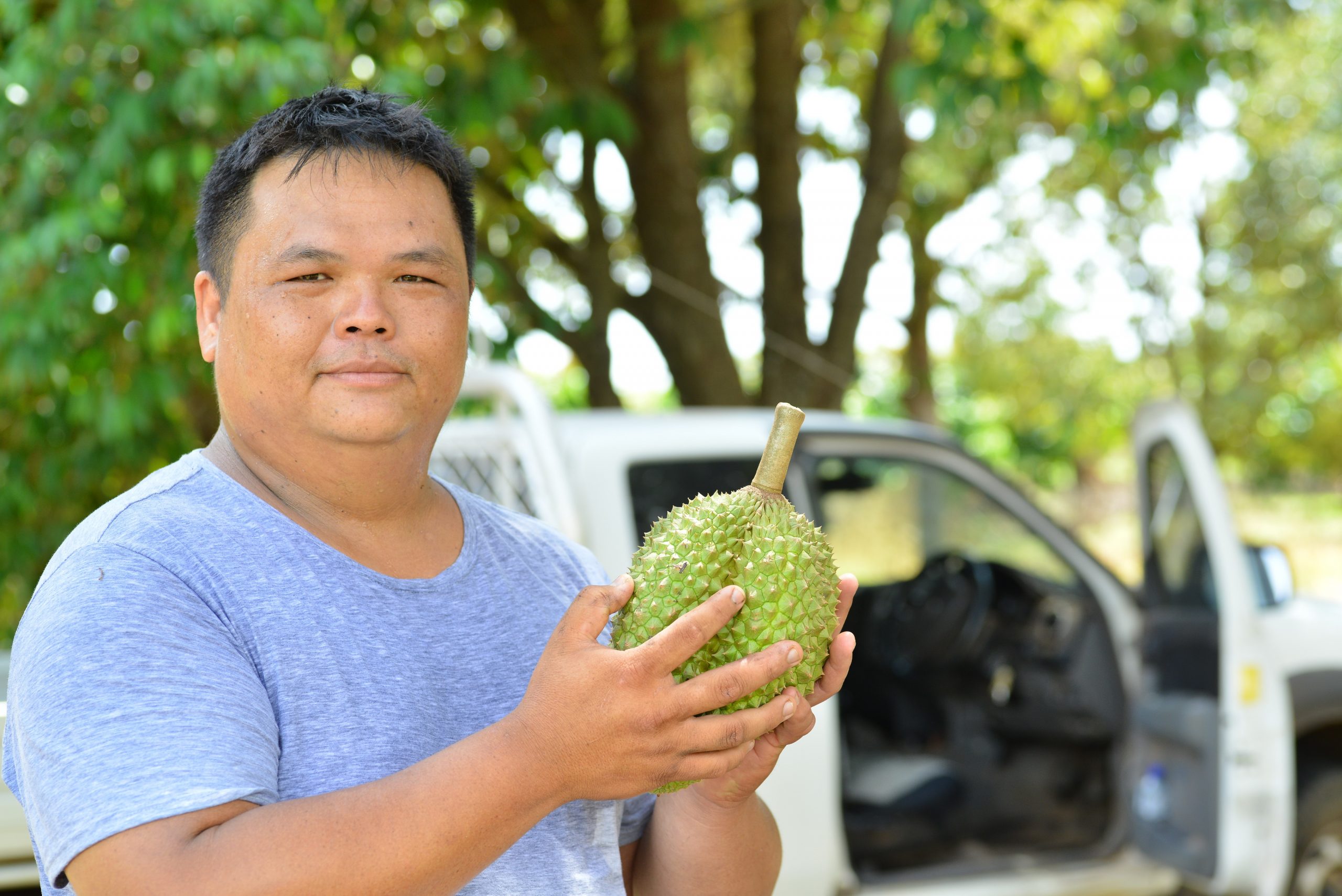
In 2019, you worked with NT Farmers and the VegNET – Northern Territory Regional Development Officer on a series of biosecurity videos as part of the ‘Biosecurity Champions Initiative.’ How important is biosecurity to you, and why?
Growing unique rare tropical fruit in Northern Territory has been a long journey for us. Once my parents decided to move to Australia to establish a farm, they started to bring in Clonal budwood for grafting on to local tropical fruit tree plants. That journey was not an easy process. Having successfully brought these grafted trees into Australia, the plants would have to sit in quarantine for up to two years. We lost many good varieties in process of quarantine.
Even after that process, nothing was perfect – we successfully brought pomelos into Australia and grew them on farm for a few years, only for the deadly citrus canker disease to be detected on our pomelo trees in early 90s.
We watched our citrus trees bulldozed and burnt, and the farm and region were barred for growing citrus for three years until we were given the all-clear.
In April 2018, the dreaded citrus canker returned to the NT in nursery plants, and we were staring down the barrel of another bulldozing and burning.
However, with the help of NT Farmers and government agencies, many citrus farmers in our region – including us – had trees surveyed and we came back clear. We quickly introduced strict on-farm biosecurity protocols when it came to citrus products. Within five months we were able to restart interstate trade with agreed protocols. As of April 2021, NT successfully eradicated citrus canker again and we’ve been able to trade freely.
The citrus canker outbreak has caused the business to make major modifications to comply with new export protocol for our pomelo. This would have been avoided if citrus canker was not detected in Australia.
Another major biosecurity concern for us and our emerging durian industry is durian seed borer, which is epidemic in Southeast Asia.
We are blessed in Australia not to have these borer, which develop inside the fruit. There is no successful method of control. If borer enters the country, it will have a drastic effect on the durian industry as we won’t have chemicals to control the borer – and we will lose our key advantage for growing durian in Australia.
Durian seed borer cannot be visibly detected without opening the fruit up. Current import protocols state the whole durian must be frozen as it ensures that borer is killed by freezing.
However, some importers will run the risk of falsely declaring fresh whole durian as frozen and have brought in fresh whole durian against the Biosecurity Import Conditions system (BICON) directive. They have been successfully picked up by the biosecurity team. If this isn’t detected, the risk of durian seed borer entering Australia is high and can destroy the Australian durian industry – and other horticultural industries.
What motivates you to be involved in industry activities, and what are the benefits for you and your business of being engaged with others?
Being able to provide advice that will shape the future of our industry. What motivate me to work with industry is always keeping abreast of news and ideas. Having an early warning from industry will help you ride out the rough water during a crisis.
Furthermore, a farmer meeting and talking to fellow peers might pick up techniques that can be adopted quickly; otherwise, you may get left behind. If it wasn’t for government researchers trialling techniques on our farms, we wouldn’t have introduced Integrated Pest Management and beneficial bugs, leaf nutrient testing and single level nutrient application.
Being involved in industry activities helps us keep up to date with farms in this ever-changing environment.
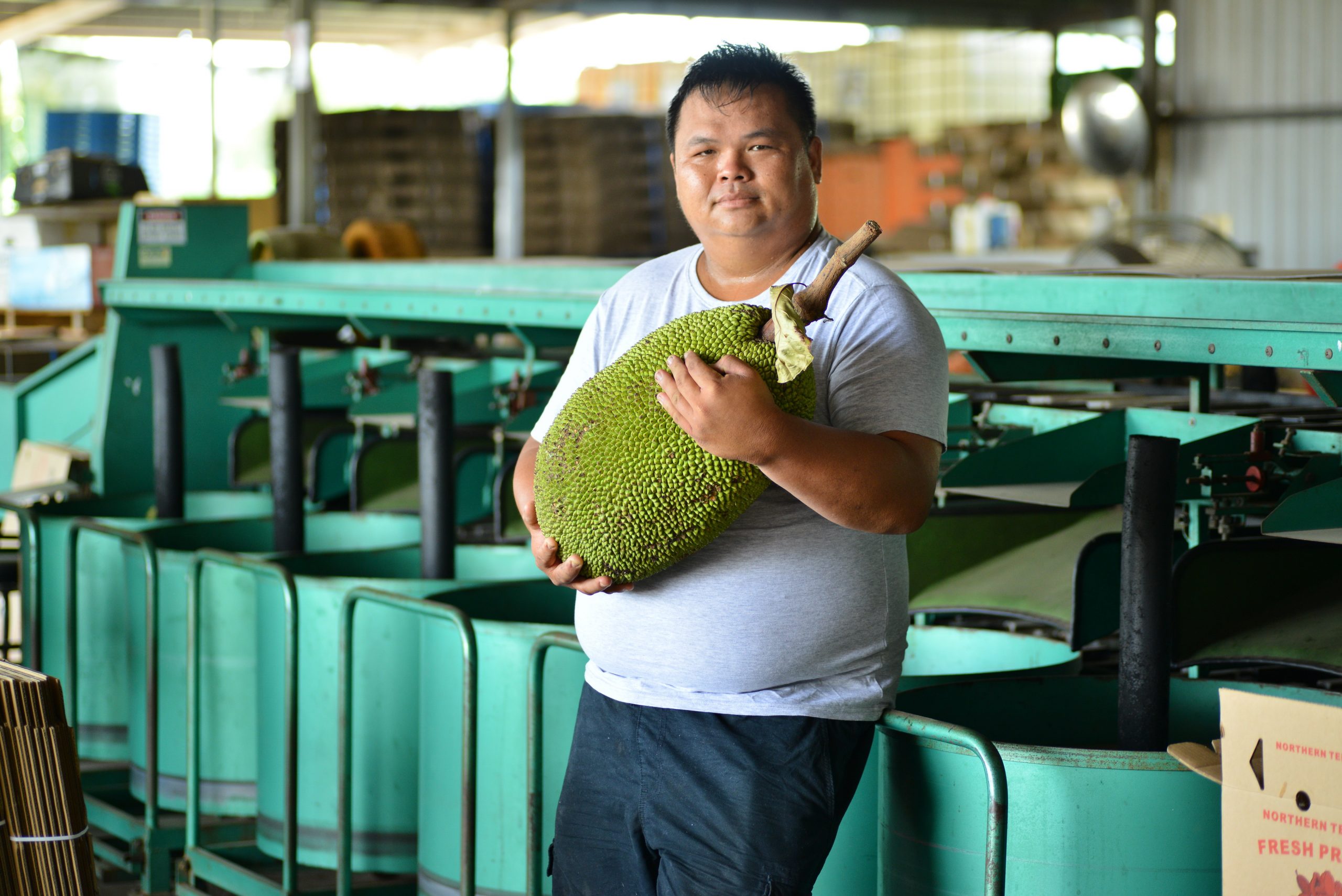
What do you enjoy most about working in the horticulture industry, and how do you maintain your enthusiasm?
Enthusiasm is not easily maintained in our industry. We have our ups and downs from a good season with great returns to having oversupply and very low returns.
I enjoy being an introvert while sitting on the tractor for hours, listening to a podcast and thinking up ideas to trial next. A fellow peer once told me, “The best ideas come while sitting on a tractor”, and I hold truly to that.
Days on the farm are never same. I enjoy a challenge thrown at me. This could involve working out the most efficient way to load trucks of equipment to move between farms during mango season; troubleshooting and repairing broken machinery; or having fellow farmers visiting and asking how we farm. Every day is different, which keep me on my toes.
Where do you see yourself in five years’ time?
I hope to be still working at Tropical Primary Products. I also hope to further improve the NT horticulture industry and shape a prosperous future for Top End farming.
However, five years is a long time, and it is uncertain how things will turn out. As the last two years have shown us, having to adapt and change on the fly is key to our survival.
As a primary producer, we take pride in our work and the knowledge that we are feeding the nation; if not, the world.
Find out more
Click here to read Han Shiong Siah’s Nuffield report.
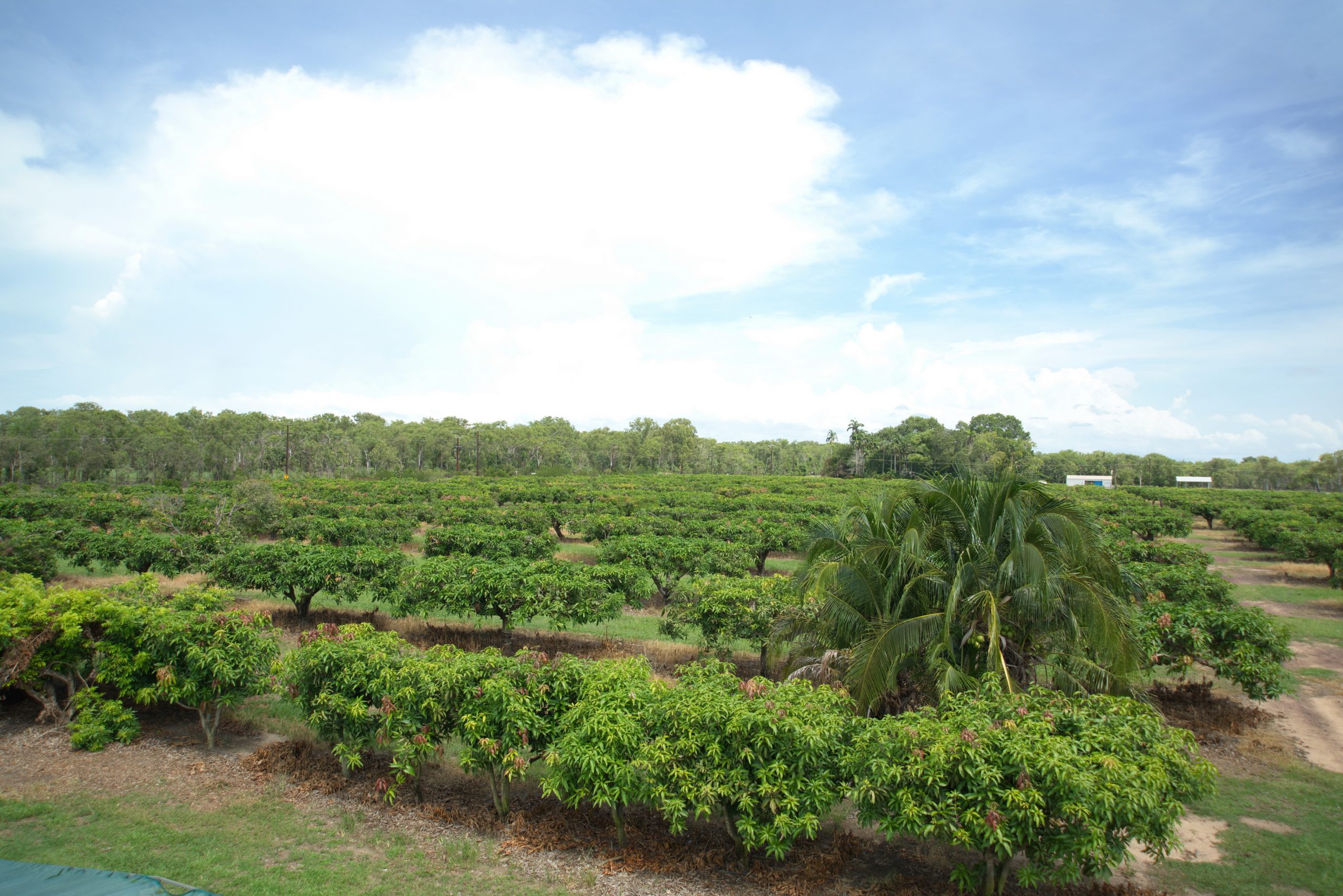
This grower profile first appeared in the leading magazine for the Australian vegetable industry, Vegetables Australia. If you’d like to subscribe to receive a new edition of Vegetables Australia in your mailbox every three months, use our online subscription form!
Photography credit: Oliver Thompson.

